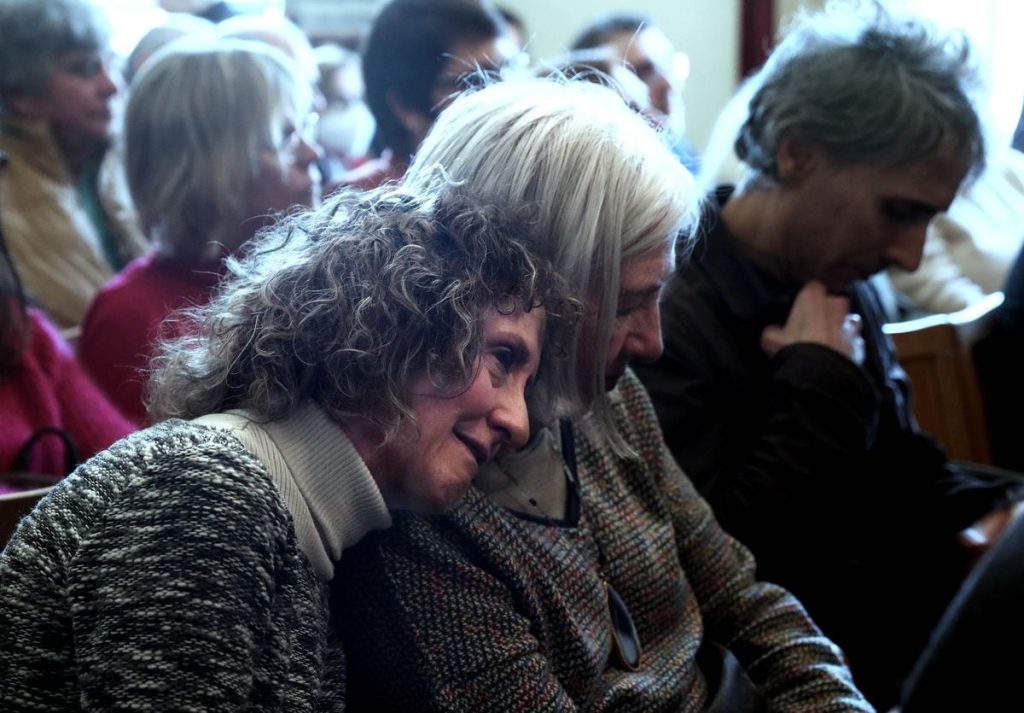Family members of Marcela Castelo, who was shot in 1936, attend the emotional ceremony of delivering her remains after they were exhumed from a mass grave in Cuevas del Valle (Ávila) in March 2023. The PP and Vox continue their crusade against memory legislation and propose “concord laws” in regions where they govern together. They have registered texts in Castilla y León and the Valencian Community based on false premises and errors. This offensive does not affect the validity and application of the state law, but it represents a setback in the principles of international law of truth, justice, reparation, and guarantees of non-repetition for victims of human rights violations.
The false premises of the so-called concord laws of the PP and Vox claim that the laws only address victims of the Republican side, fostering a partisan division. However, existing laws already cater to all victims of the Spanish Civil War and Franco’s regime, regardless of their political ideology. The laws do not specify sides or ideology, aiming to provide justice and reconciliation for all victims. The concord laws proposed by PP and Vox attempt to downplay historical events, avoiding terms like “dictatorship” and “golpe de Estado” to portray a more neutral perspective on the past, emphasizing concord and unity.
The proposed concord laws also focus on legitimizing all regimes in Spain’s history, highlighting the need for freedom of memory without reopening debates on regime legitimacy. They accuse previous memory legislation of intruding on individual memory and limiting freedom of opinion, aiming to promote a more neutral and constitutionally-aligned approach to history education. The laws also aim to defend the values of the Constitution and promote the teaching of human rights and constitutional principles in the educational curriculum, emphasizing a balanced and objective view of history.
The legislation opposed by PP and Vox does not target historians with different views on historical events but rather aims to address the manipulation of facts in historical narratives that cause harm or humiliation to victims. The laws also advocate for the study of Francoist repression in schools, a measure viewed by the right-wing parties as “indoctrination.” Sanctions are proposed for those who promote the glorification of the Civil War and the dictatorship, similar to measures against terrorism propaganda. Overall, the debate surrounding memory legislation reflects varying interpretations of Spain’s past and attempts to balance justice, reconciliation, and historical accuracy.














